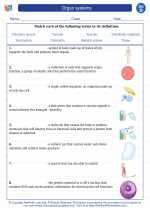Protein
Proteins are large, complex molecules that play many critical roles in the body. They are made up of smaller units called amino acids, which are linked together in a specific sequence. There are 20 different amino acids that can be combined to form a protein, and the sequence of amino acids determines the protein's structure and function.
Functions of Proteins:
- Enzymes: Proteins act as catalysts, speeding up chemical reactions in the body.
- Structural Support: Proteins provide structural support for cells, tissues, and organs.
- Transportation: Some proteins help transport molecules, such as oxygen, throughout the body.
- Immune Function: Antibodies are specialized proteins that help the body defend against foreign invaders.
- Hormones: Certain proteins act as hormones, regulating various physiological processes.
Sources of Protein:
Protein is found in a variety of foods, including:
- Meat, poultry, and fish
- Dairy products
- Eggs
- Legumes (beans and lentils)
- Nuts and seeds
- Tofu and other soy products
Protein Structure:
Proteins have a complex three-dimensional structure, which is critical to their function. The structure of a protein is determined by its amino acid sequence and is influenced by various factors such as temperature, pH, and the surrounding environment.
Protein Deficiency:
Insufficient protein intake can lead to a range of health problems, including impaired growth and development, weakened immune function, and muscle wasting. It's important to consume an adequate amount of protein as part of a balanced diet.
Study Guide:
When studying proteins, it's important to focus on their structure, functions, and sources. Make sure to familiarize yourself with the different types of proteins and their roles in the body. Additionally, understand the consequences of protein deficiency and the importance of consuming protein-rich foods.
Remember to review the amino acid composition of proteins and how they are linked together to form the complex structures that carry out essential biological functions.
.◂Science Worksheets and Study Guides Fourth Grade. Organ systems
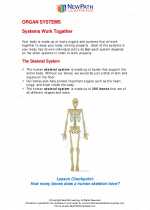
 Worksheet/Answer key
Worksheet/Answer key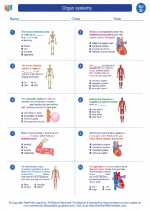
 Worksheet/Answer key
Worksheet/Answer key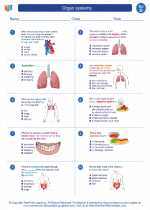
 Worksheet/Answer key
Worksheet/Answer key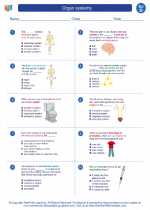
 Vocabulary/Answer key
Vocabulary/Answer key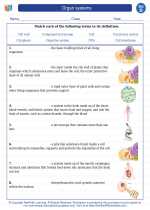
 Vocabulary/Answer key
Vocabulary/Answer key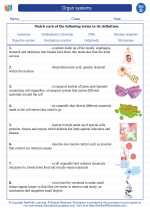
 Vocabulary/Answer key
Vocabulary/Answer key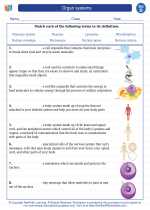
 Vocabulary/Answer key
Vocabulary/Answer key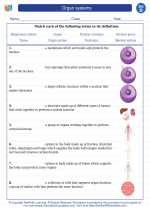
 Vocabulary/Answer key
Vocabulary/Answer key